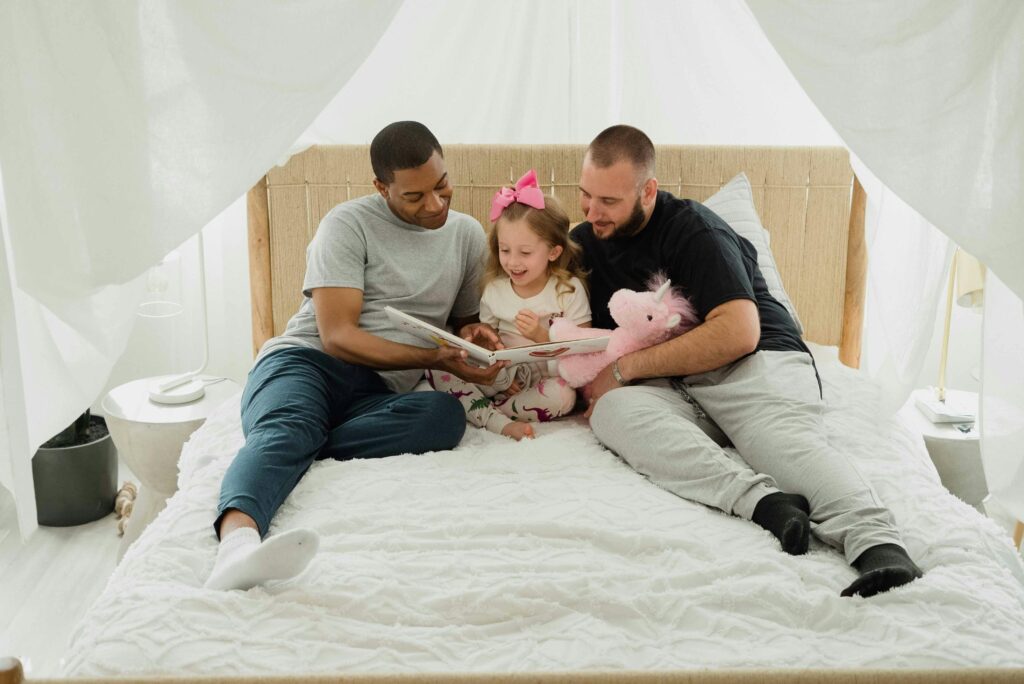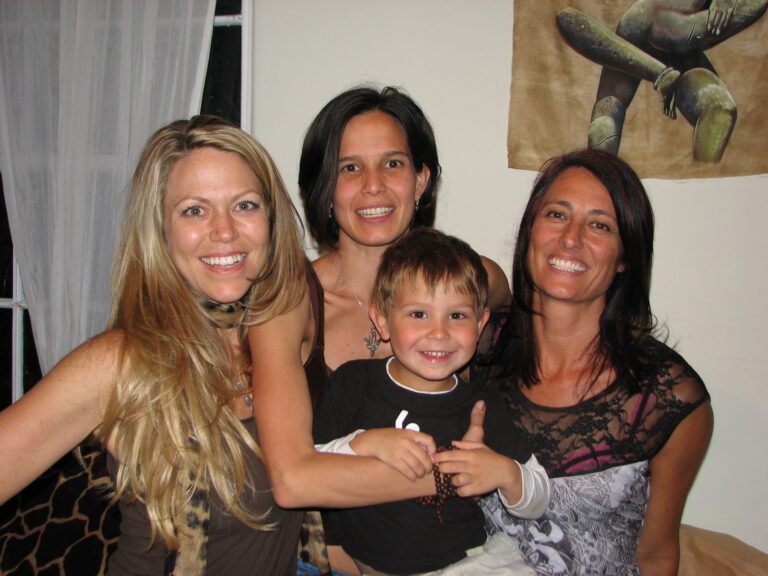Six Steps for Positive Polyamorous Parenting
With so few role models for polyamorous parenting available in the media or most people’s direct experience, it can be a challenge to know how to be an effective parent in a polyamorous family. After studying polyamorous families with children for more than 20 years, I have identified a few things that contribute to comfortable and effective family interactions for both parents and kids. Below I list six of the most common ways that practiced polyamorous parents manage family life.

Be Selective
If you are dating, you need to be very selective about who you allow entry to your family. Not every date is family-friendly, and some of them will prefer not to meet your kids. Keeping the date and the kids separate can be just fine for an occasional fling or some discreet adult time, but it makes it difficult to have a truly integrated polyamorous relationship when you can’t spend time all together. If your date is open to meeting the rest of the family, then take the time to check that person out carefully prior to letting them know where you live. That includes not only asking that person questions about themselves and their background, but paying attention to red flags that you might overlook if you were only responsible for yourself. Another good way to check the person out is to ask to meet that person’s friends for context (if possible, some people are not out to their friends as poly so explaining you could be a challenge) and, even better, get community input on this person’s reputation. If at all possible, chat with your date’s ex or current partners to find out how they handle conflict and how they acted during and after the breakup. Finally, some polyamorous parents go as far as doing a legal background check on dates who seem to be on the verge of becoming serious partners.
Go Slow
When you are in the grips of the glee of New Relationship Energy it can be difficult to go slowly. With children in the mix, it is crucial to take your time. Once you are satisfied that your date is not an ax murderer, you can start thinking about introducing them to the kids. If your family is like many other polyamorous families, you tend to have a fairly active social life filled with friends and activities. One of the best ways for the kids to meet the new partner is to have that adult blend in with the other friendly adults who come over for dinner or meet for game night. There is no need to make a big deal about it or introduce the partner as anything outside of the kids’ usual social contacts.
Let Kids Take the Lead
Many experienced polyamorous parents explain how they wait and allow the children to direct a conversation about polyamory. Small children don’t really understand sexuality, and there is no need to explain exactly what you mean by “friend” until the kids are old enough to understand adult relationships. At some point, most kids realize that their peers’ parents don’t have sleep overs several times a week and ask their own parents what is happening. When that happens, you can give them age-appropriate information. Allowing the kids to ask questions lets them move at a pace that feels comfortable for them.

The one caveat to waiting to discuss it until the children bring it up is when you have an inquisitive child who figures out that one of the parents is dating. In order to avoid having the child think that they know a terrible secret that one of the parents is cheating on the other, you might want to let them know that everything is OK and that each parent knows what is happening. Be sure that the kids know they can ask you questions. Kids do not need details unless they ask for more information, they just need to know that their parents are not hiding things from each other and the kids don’t have to hide things either.
Be Honest
One of the defining features of polyamorous relationships is their reliance on honest communication, and that trickles down from adults’ romantic relationships to their parenting. Poly parents tend to be honest with their children – in an age-appropriate manner. Telling the truth about relationships and other things builds trust. Sometimes that means admitting when parents make mistakes and apologizing for their screw ups. At other times it means being open to children’s questions or admitting when you don’t know something. Being honest does not mean telling the kids every single thing – parents can give age-appropriate information or say that some things are private.
Be Flexible
Allow your children to determine their own boundaries with your partners, within reason. Obviously a three-year-old must listen to adults who say they cannot play with the fire, regardless of that adult’s relationship to their parents. An 11-year-old who wants to introduce dad’s long-term boyfriend as Uncle Steve should be allowed to choose that label (again, within reason – Steve the Jerk would not be allowed for any other friend and should not be allowed for the boyfriend either). The kids know their own social worlds, so allow the children to determine how they handle their peers’ and teachers’ interactions with the family.
Reject Shame
If you are ashamed of your relationships your kids will know it. If you feel that much shame, then polyamory is not a good choice for you – at least until you deal with your shame. If you do not feel ashamed, then do not transmit that to the kids. Being private does not mean being ashamed. Families do and talk about all sorts of things at home that they do not do in public or in front of Grandpa. It is ok to be naked in your own bathroom or bedroom, but not at school or the grocery store. For some families, it is ok to swear or question the existence of god at home or with some specific friends, but not in front of Great Auntie Florence. The same goes for talking about private family issues like polyamory in front of others who might feel upset about it. You can avoid transmitting shame to your children by treating your relationships as matter-of-fact (not a big deal) and allowing open communication.

Grow Together – Nurturing Family Love in the Polyamorous Journey
Step into a realm where parenting within polyamory is an adventure filled with love, understanding, and communal growth. SwingTowns welcomes you to a supportive community where the joys and challenges of polyamorous parenting are shared and celebrated. By signing up for your free account, you’re joining a network of families who are navigating the beautiful complexities of love and parenting together. Begin your exploration with SwingTowns today, and let’s grow together in creating nurturing, loving environments for every member of the polyamorous family.
Swingtowns is incredible, I have met many awesome couples and single females on here. I recommend this site to anyone in the lifestyle! -MrMsBullDurham
Want to read more? Check out Polyamory 101 by Angel Kalafatis.







